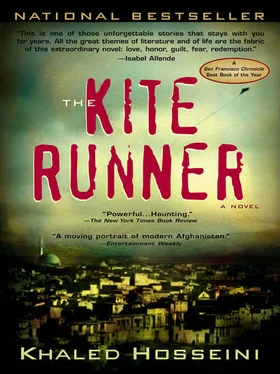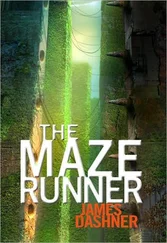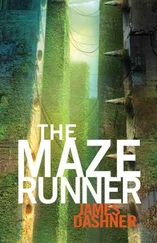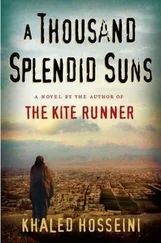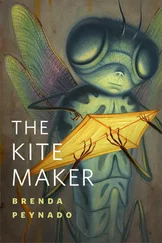Then the end. That, I’ll take to my grave:
I was on the ground laughing, Assef straddling my chest, his face a mask of lunacy, framed by snarls of his hair swaying inches from my face. His free hand was locked around my throat. The other, the one with the brass knuckles, cocked above his shoulder. He raised his fist higher, raised it for another blow.
Then: “ Bas .” A thin voice.
We both looked.
“Please, no more.”
I remembered something the orphanage director had said when he’d opened the door to me and Farid. What had been his name? Zaman? He’s inseparable from that thing , he had said. He tucks it in the waist of his pants everywhere he goes .
“No more.”
Twin trails of black mascara, mixed with tears, had rolled down his cheeks, smeared the rouge. His lower lip trembled. Mucus seeped from his nose. “ Bas ,” he croaked.
His hand was cocked above his shoulder, holding the cup of the slingshot at the end of the elastic band which was pulled all the way back. There was something in the cup, something shiny and yellow. I blinked the blood from my eyes and saw it was one of the brass balls from the ring in the table base. Sohrab had the slingshot pointed to Assef’s face.
“No more, Agha. Please,” he said, his voice husky and trembling. “Stop hurting him.”
Assef’s mouth moved wordlessly. He began to say something, stopped. “What do you think you’re you doing?” he finally said.
“Please stop,” Sohrab said, fresh tears pooling in his green eyes, mixing with mascara.
“Put it down, Hazara,” Assef hissed. “Put it down or what I’m doing to him will be a gentle ear twisting compared to what I’ll do to you.”
The tears broke free. Sohrab shook his head. “Please, Agha,” he said. “Stop.”
“Put it down.”
“Don’t hurt him anymore.”
“Put it down.”
“Please.”
“PUT IT DOWN!”
“Bas.”
“PUT IT DOWN!” Assef let go of my throat. Lunged at Sohrab.
The slingshot made a thwiiiiit sound when Sohrab released the cup. Then Assef was screaming. He put his hand where his left eye had been just a moment ago. Blood oozed between his fingers. Blood and something else, something white and gel-like. That’s called vitreous fluid , I thought with clarity. I’ve read that somewhere. Vitreous fluid .
Assef rolled on the carpet. Rolled side to side, shrieking, his hand still cupped over the bloody socket.
“Let’s go!” Sohrab said. He took my hand. Helped me to my feet. Every inch of my battered body wailed with pain. Behind us, Assef kept shrieking.
“OUT! GET IT OUT!” he screamed.
Teetering, I opened the door. The guards’ eyes widened when they saw me and I wondered what I looked like. My stomach hurt with each breath. One of the guards said something in Pashtu and then they blew past us, running into the room where Assef was still screaming. “OUT!”
“Bia,” Sohrab said, pulling my hand. “Let’s go!”
I stumbled down the hallway, Sohrab’s little hand in mine. I took a final look over my shoulder. The guards were huddled over Assef, doing something to his face. Then I understood: The brass ball was still stuck in his empty eye socket.
The whole world rocking up and down, swooping side to side, I hobbled down the steps, leaning on Sohrab. From above, Assef’s screams went on and on, the cries of a wounded animal. We made it outside, into daylight, my arm around Sohrab’s shoulder, and I saw Farid running toward us.
“Bismillah! Bismillah!” he said, eyes bulging at the sight of me. He slung my arm around his shoulder and lifted me. Carried me to the truck, running. I think I screamed. I watched the way his sandals pounded the pavement, slapped his black, calloused heels. It hurt to breathe. Then I was looking up at the roof of the Land Cruiser, in the backseat, the upholstery beige and ripped, listening to the ding-ding-ding signaling an open door. Running footsteps around the truck. Farid and Sohrab exchanging quick words. The truck’s doors slammed shut and the engine roared to life. The car jerked forward and I felt a tiny hand on my forehead. I heard voices on the street, some shouting, and saw trees blurring past in the window. Sohrab was sobbing. Farid was still repeating, “Bismillah! Bismillah!”
It was about then that I passed out.
Faces poke through the haze, linger, fade away. They peer down, ask me questions. They all ask questions. Do I know who I am? Do I hurt anywhere? I know who I am and I hurt everywhere. I want to tell them this but talking hurts. I know this because some time ago, maybe a year ago, maybe two, maybe ten, I tried to talk to a child with rouge on his cheeks and eyes smeared black. The child. Yes, I see him now. We are in a car of sorts, the child and I, and I don’t think Soraya’s driving because Soraya never drives this fast. I want to say something to this child – it seems very important that I do. But I don’t remember what I want to say, or why it might have been important. Maybe I want to tell him to stop crying, that everything will be all right now. Maybe not. For some reason I can’t think of, I want to thank the child.
Faces. They’re all wearing green hats. They slip in and out of view. They talk rapidly, use words I don’t understand. I hear other voices, other noises, beeps and alarms. And always more faces. Peering down. I don’t remember any of them, except for the one with the gel in his hair and the Clark Gable mustache, the one with the Africa stain on his cap. Mister Soap Opera Star. That’s funny. I want to laugh now. But laughing hurts too.
I fade out.
SHE SAYS HER NAME IS AISHA, “like the prophet’s wife.” Her graying hair is parted in the middle and tied in a ponytail, her nose pierced with a stud shaped like the sun. She wears bifocals that make her eyes bug out. She wears green too and her hands are soft. She sees me looking at her and smiles. Says something in English. Something is jabbing at the side of my chest.
I fade out.
A MAN IS STANDING at my bedside. I know him. He is dark and lanky, has a long beard. He wears a hat – what are those hats called? Pakol s? Wears it tilted to one side like a famous person whose name escapes me now. I know this man. He drove me somewhere a few years ago. I know him. There is something wrong with my mouth. I hear a bubbling sound.
I fade out.
MY RIGHT ARM BURNS. The woman with the bifocals and sun-shaped stud is hunched over my arm, attaching a clear plastic tubing to it. She says it’s “the Potassium.” “It stings like a bee, no?” she says. It does. What’s her name? Something to do with a prophet. I know her too from a few years ago. She used to wear her hair in a ponytail. Now it’s pulled back, tied in a bun. Soraya wore her hair like that the first time we spoke. When was that? Last week?
Aisha! Yes.
There is something wrong with my mouth. And that thing jabbing at my chest.
I fade out.
WE ARE IN THE SULAIMAN MOUNTAINS of Baluchistan and Baba is wrestling the black bear. He is the Baba of my childhood, Toophan agha , the towering specimen of Pashtun might, not the withered man under the blankets, the man with the sunken cheeks and hollow eyes. They roll over a patch of green grass, man and beast, Baba’s curly brown hair flying. The bear roars, or maybe it’s Baba. Spittle and blood fly; claw and hand swipe. They fall to the ground with a loud thud and Baba is sitting on the bear’s chest, his fingers digging in its snout. He looks up at me and I see. He’s me. I am wrestling the bear.
I wake up. The lanky, dark man is back at my bedside. His name is Farid, I remember now. And with him is the child from the car. His face reminds me of the sound of bells. I am thirsty.
Читать дальше
